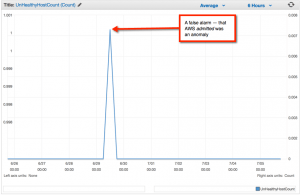
Have you ever had a problem with Gmail or Office 365? Sure you have. But have you ever gotten a specific, accurate answer to your emailed question to support from Google or Microsoft? Bet you didn’t.
What you get when you contact the support contacts for most cloud providers is the technology equivalent of a cold shoulder. They respond with anything but the answer you really need: “forums” staffed by people who link you to FAQs you’ve already read, reporting systems that try their best to prevent you from reporting an issue and off-shored support personnel whose English is, ahem, challenged.
I’ve marveled before that, despite AWS’s growing pains (good luck getting a solutions engineer or even a enterprise salesperson to answer your emails), their support people go out of their way to level with you when something at their end doesn’t work. It’s so unusual, so unlike anything anywhere else in the cloud provider world that it blows me away every time it happens.
And it just happened again. A few days ago, an AWS Elastic Load Balancer alarm in CloudWatch triggered based on CloudWatch’s belief that at least one of the EC2 instances in the ELB was out of service. Except it was a false alarm; all the instances were just fine. (Click on the image nearby to see the ELB alarm.)
I emailed AWS support about this and received this reply:
Hello,
Thank you for contacting AWS… I have looked through your ELB on what may have caused this alarm. It appears that this is indeed a false alarm. The ELB went through a scaling event during this time and changed nodes based on traffic demands. During this time there was a small delay in reporting between the old nodes and the new nodes. The performance of your application on the resources is not a concern here. This is strictly a metric that was reported to CloudWatch that was not accurate and caused the alarm you are facing. I apologize for the false alarm that was reported from CloudWatch.Looking at your ELB historically I don’t have reason to believe that you should see this consistently.
Thanks!
Best regards,
Dan L.
Can you believe it? A specific, comprehensive answer to what is, after all, one misfire among what must be millions — maybe hundreds of millions — of CloudWatch alarms AWS is managing.
Compare this to the last answer you got from a cloud provider, if you even got one, and you will understand why AWS is mopping up the competition. Cloud architects know that support is the real competitive difference among otherwise converging competitors — and Amazon is absolutely bludgeoning everyone else with superior support.
Leave a Reply